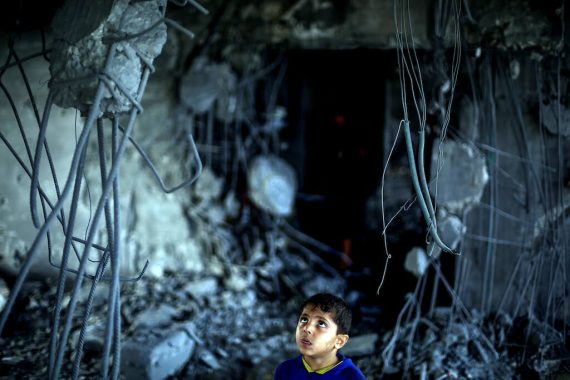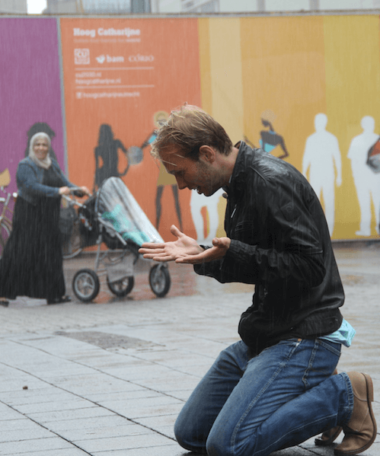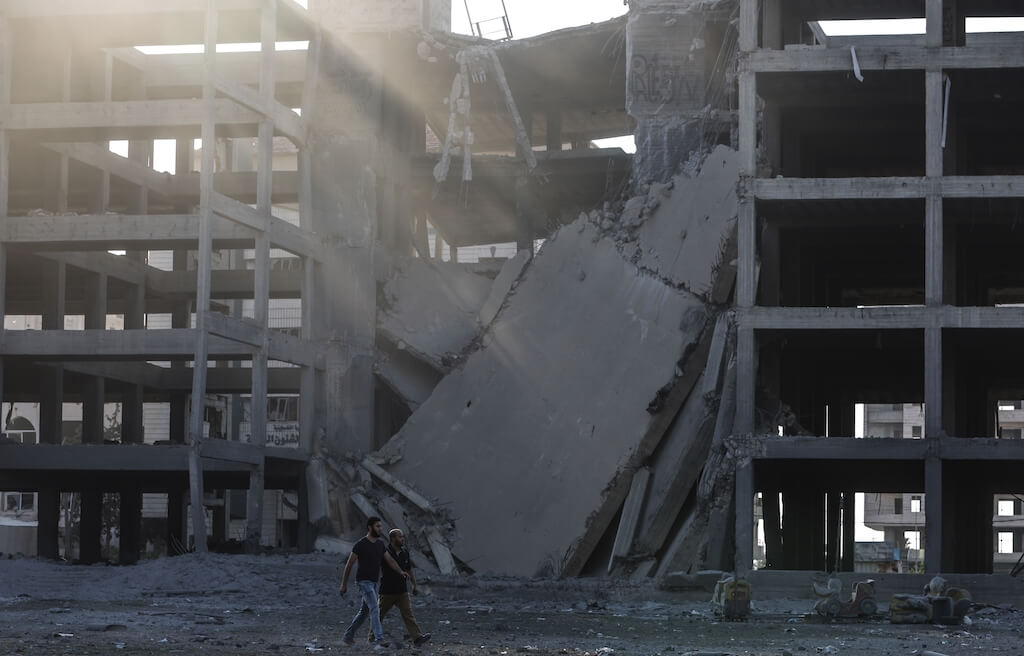Twelve years ago, on December 27, 2008, I was sipping a cup of coffee as I took a short break from my university assignments. I was an undergraduate student preparing for my final exams when the Israeli Air Force (IAF) carried out more than 60 air strikes against Hamas-run police stations, buildings, facilities, and military sites, killing approximately 200 Palestinians in the first few hours of the intensive air offensive.
Palestinians in Gaza are used to hearing sounds of explosions as they became part of their daily life routines – just like growing up under siege and occupation. They are used to the sounds of explosions and the buzzing of drones; helicopters and fighter jets hovering above their heads, day and night; missiles fired at targets in Gaza; or Israelis just killing their boredom by producing sonic bombs, breaking the sound barrier and smashing some windows.
Gazans’ Shocked
But the bombing I heard in 2008 was unusual even for Gaza.
The electricity went out, and I turned on my cell phone’s built-in radio only to discover that the signals of many local radio stations were no longer working. I went out to try to find out what happened as rumors had started to circulate: some said Israel had targeted the Hamas-run Al-Abbas Police Station in Gaza city.
Others claimed the target was the Abu Middain Police Station, east of Nuseirat refugee camp, while others yet said it was the building of the Ministry of Interior. It turned out that all these sites were targeted along with many more.
The intensive bombing campaign, which Israel later named “Operation Cast Lead,” was shocking even for Palestinians for two reasons. The number of sites targeted at the same time was unprecedented with nearly 60 sites simultaneously targeted by air strikes that caused huge explosions.
The second reason was that the military offensive started on a Saturday; Saturday is holy for the followers of the Jewish faith and a symbol of peace. Despite this, Israel chose a Saturday, violating the holiness of the Jewish Sabbath, to take the lives of hundreds of Palestinians.
The Israeli offensive lasted for 23 days, claiming the lives of more than 1,500 Palestinians, injuring some 6,000 others, completely destroying 4,100 houses, and partially destroying 17,000 others.
One of the victims was my neighbor Ahmed Altawil, an eight-year-old child whose family had evacuated their house following a rumor that the mosque next to their house would be bombed. While playing football near his uncle’s home, an Israeli strike killed him, ending his short life way too early. In 2014, the very same mosque was leveled to the ground, which caused a serious damage to Ahmed’s family house.
One of the victims was my neighbor Ahmed Altawil, an eight-year-old child whose family had evacuated their house following a rumor that the mosque next to their house would be bombed. While playing football near his uncle’s home, an Israeli strike killed him, ending his short life way too early.
One of the stories that Israel’s Operation Cast Lead left in the collective memory of Palestinians in Gaza is that of the Al-Samouni family. An Israeli officer asked the Al-Samouni family to stay in one room in their house in Al-Zaytoun neighborhood of Gaza after the Israeli army occupied the entire area.
Following this, the Israeli forces bombed the house while they were still inside, killing 29 people of the same extended family. To add insult to injury, the Israeli Prosecution decided to close the investigation against the military officer who ordered the bombing. Justice for the Al-Samouni family and thousands of other Palestinian families is still to be served.
Will Justice be Served?
Today, Israeli leaders, such as Tzipi Livni and Ehud Olmert, who are responsible for the alleged crimes committed against the Palestinians in Gaza during Operation Cast Lead are still free. The chances of bringing them to justice for killing Palestinians are minimal.
However, there is a slightly better possibility of convicting them on charges of corruption, such as the case on trial at the moment against Netanyahu.
Despite the very low chances of holding Israeli leaders criminally responsible for their alleged crimes in Gaza, especially these days with the rising tides against the Palestinians, politically, legally and economically, Palestinians have not lost hope.
The efforts made by the International Criminal Court (ICC) to open an investigation into possible Israeli war crimes in the occupied Palestinian territories offers some hope that one day justice could be served.
At the same time, preserving the memory of Palestinian victims is equally important. It is important to tell the stories of Palestinians who lost their lives because of Israel’s military operations in Gaza.
A child like my neighbor Ahmad Altawil is not a mere number: he had a family and his death was deeply mourned. There are many stories that deserve to be told about Ahmad: his great love of football, for one, cut short by an Israeli strike that took his life in 2009, or the other air strike that destroyed his family’s house in 2014.
Preserving the memory of Palestinian victims is important, so is to tell the stories of Palestinians who lost their lives because of Israel’s military operations in Gaza.
Preserving these memories is essential for the victims, their families, and for any future justice for the Palestinian people.
A War on Memory
In the same context, Israel’s war on Palestinians, including Operation Cast Lead in Gaza in 2008, is a war on memory and narrative as well as a war on the psychical presence of Palestinians, who are projected as the opponents of Israel’s settler colonial project, a master plan built on the notion that Palestinians are the unwanted Others.
Preserving this memory feeds into what Palestinian poet Mahmoud Darwish spoke of as “the invaders’ fear of memories,” keeping the Palestinian memory alive despite all attempts to erase it is a form of resistance too.
The world has to remember that as long as justice is not served in Palestine, the entire Middle East cannot achieve peace and security- even if governments claim otherwise. The youngest Palestinian children whose parents were killed in 2008 would turn 11 today, which means that the feeling of being oppressed has become generational and Israel will come to a point where it can no longer maintain a reality, the backbone of which is oppressing Palestinians.
One lesson from Israel’s Operation Cast Lead and other military onslaughts in Gaza is that using excessive force against Palestinians has only made them more determined over the years.
The brightest example of this determination is the Great March of Return, where Palestinians in Gaza, 75% of whom are refugees, following three destructive Israeli onslaughts, took the initiative and called for their return to their homes and towns according to the United Nations General Assembly Resolution 194.
Israel needs to understand that it can’t continue its denial of the reality in Gaza, and that the Palestinians’ memories of their lives, the wars, and the lives of their ancestors in historic Palestine will continue to serve as fuel to the fire of their memories.
These memories will continue to live until the historical injustice in Palestine is addressed.

VIDEO: How Political Borders Are Redrawn in the Balkans, Caucasus and the Middle East



